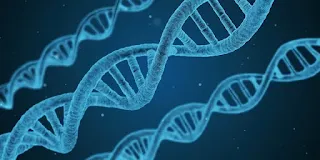Blood cancer disrupts blood cell production, leading to symptoms like fatigue and infections. Early detection and varied treatments enhance survival rates.
Blood cancer, also known as hematologic cancer, originates in the blood-forming tissues, affecting the production and function of blood cells. Types include leukemia, lymphoma, and myeloma. Symptoms may include fatigue, easy bruising, and recurrent infections. Diagnosis involves blood tests, bone marrow biopsy, and imaging. Treatment options vary, including chemotherapy, radiation, and stem cell transplant. Early detection and advancements in medical interventions have improved outcomes for many patients. Regular medical check-ups and awareness of potential symptoms are crucial for early diagnosis and effective management of blood cancers.
Blood cancer, also known as hematologic cancer, encompasses a group of malignancies that affect the blood, bone marrow, lymphatic system, and other components of the hematopoietic system. This category includes various types such as leukemia, lymphoma, and myeloma.
Leukemia is characterized by the abnormal proliferation of immature white blood cells in the bone marrow, leading to a compromised immune system. Acute forms progress rapidly, while chronic forms develop more gradually. Lymphoma, on the other hand, originates in the lymphatic system, affecting lymphocytes. Hodgkin lymphoma and non-Hodgkin lymphoma are the two main types, with distinct characteristics and treatment approaches. Myeloma involves the abnormal growth of plasma cells, affecting the bone marrow and weakening bones.
The causes of blood cancer are multifactorial, involving genetic, environmental, and lifestyle factors. Certain genetic mutations may predispose individuals to these conditions, while exposure to ionizing radiation, certain chemicals, or viral infections can also contribute. Additionally, a compromised immune system and age are known risk factors.
Common symptoms include fatigue, unexplained weight loss, frequent infections, and easy bruising or bleeding. Diagnosis often involves blood tests, bone marrow biopsies, and imaging studies to assess the extent of the disease. Treatment options vary based on the type and stage of blood cancer but may include chemotherapy, radiation therapy, immunotherapy, and stem cell transplantation.
Research and advancements in medical science have improved the prognosis for many blood cancers, with early detection playing a crucial role. Ongoing efforts in precision medicine aim to tailor treatments based on individual genetic profiles, enhancing the effectiveness of therapeutic interventions. Despite progress, managing blood cancer remains a complex challenge, emphasizing the importance of comprehensive care, ongoing research, and support for affected individuals and their families.

This is a literary masterpiece in the world of [topic]. I'm in awe.
ReplyDelete"Navigating the world of health has never been this informative. Thanks to this website, I'm empowered with expert suggestions to enhance my well-being."
ReplyDelete